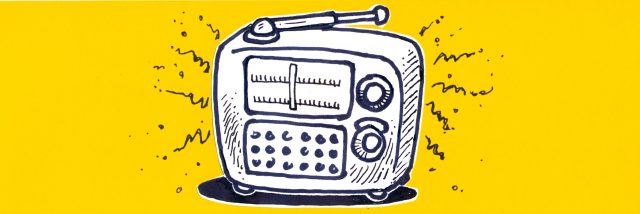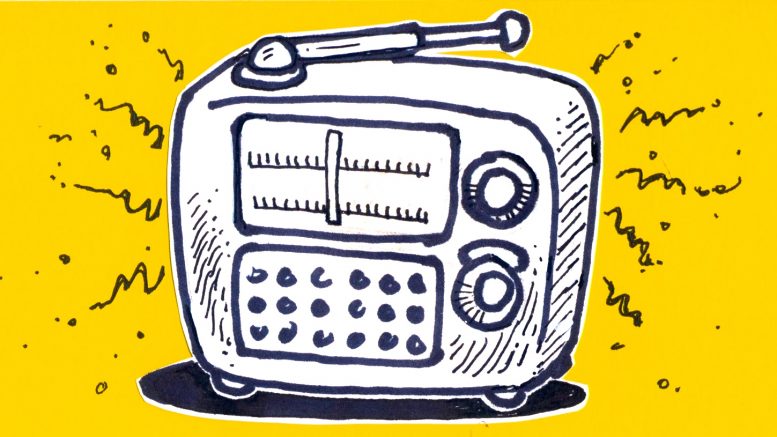
By Katherine Brewer
Freak Out & Carry On / WBUR (7/6/17)
This week on Freak Out And Carry On, Ron Suskind and Heather Cox Richardson speak with Nicco Mele, director of the Shorenstein Center on Media, Politics and Public Policy at Harvard University. They respond to President Trump’s CNN and Mika Brzezinski tweets, discuss the media’s role in the first 100 days of the Trump administration and look at historical parallels, from the John Peter Zenger trial to Richard Nixon.
Excerpts
Nicco Mele: So we’ve done five studies — all of 2015, 2016, and the first 100 days of Trump — looking at mainstream major media coverage of Trump. The truth is the media during the campaign overwhelmingly gave Trump positive coverage. However, one of the reasons for that is that a lot of the stories were driven by polling, and the story was always that Trump was rising in the polls. Despite all kinds of conventional wisdom to the contrary, he was winning!
In the first 100 days the coverage is overwhelmingly negative. However, most of the time in the first 100 days, the only person that the media quotes on Trump is Trump. I think it’s 6 percent of the time they quote a Democrat, 4 percent of the time a congressional Republican, and almost no policy experts. The stories about Trump quote Trump.
And so it’s a very weird dynamic: it’s overwhelmingly negative, but it’s also all Trump, all the time. Compared to the last three presidents, he dominates news coverage. So much more of the nightly newscast is about Trump, in the first 100 days, than any prior president. It’s really astonishing — almost to the exclusion of all other news. I’m talking about sports news and weather news, like, he crushes it.
Ron Suskind: You mention sports news; I’ll just mention this: Years ago, an ABC producer said, “Why do people watch sports on television?” I said, ‘well, I don’t know … there are winners and losers’ — but no, no, no, no. It’s the only thing that occurs on television. It actually happens. Everything else is produced. Trump occurs on television. You can’t take your eyes off of him.
He had the best lines! “Lyin’ Ted,” “Crooked Hillary,” “Low Energy Jeb.” I mean, you can’t not credit a kind of twisted genius in managing that.
Heather Cox Richardson: The thing that keeps jumping out at me is that Ron keeps asking what’s new, and we keep talking about the moment of what Trump’s doing. How is the fact that this man happens to be using Twitter any different than the rise of radio, which people would have said the exact same thing about? Or the rise of popular newspapers in the late 19th century, which was so new that the established politicians … missed it altogether? You know, after the the election of 1890, they sat in the White House going, “What happened? We didn’t see this coming, how did we lose all these elections?” I mean you could go right back to the printing press for being brand new technology. How is what’s happening at this moment any different than what happened throughout human history?
Suskind: Well, maybe part of the issue is a comparative one, in terms of the counterpoint to that. To me going straight to the American people on radio, let’s say “fireside chats” with FDR, and the cosseting around it of news, lots of other news. Reported news. Maybe the deficit of that, the diminishing of that, makes what he’s doing in this direct feed even more important, because it doesn’t have competition.
Mele: I mean, yeah, I think what’s different is that, in those other media, it was pretty expensive to have a radio broadcasting license, and it was pretty expensive, actually, to print newspapers. And that meant that very few people actually could do it. There was still political power in it, but part of what makes Trump work is the vast proliferation of media and noise. You know, if you take everything every human ever created in terms of information from the dawn of humanity — cave paintings — all the way to 2010, that’s about how much we create every 36 hours today. Instagram, Facebook, everyone’s participating in this giant cacophony, and it is beautiful and ugly and terrifying, but it also incentivizes a kind of behavior to break through. …
Link to Story, 27-Minute Audio and 1-Minute Video


